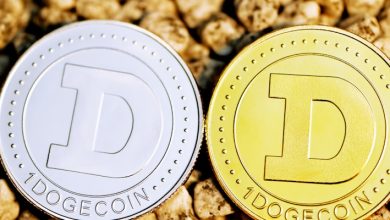What Are Altcoins and How Do They Differ from Bitcoin?

- Understanding Altcoins and Their Relationship to Bitcoin
- Exploring the World of Alternative Cryptocurrencies
- Key Differences Between Altcoins and Bitcoin
- The Rise of Altcoins in the Cryptocurrency Market
- Investing in Altcoins: What You Need to Know
- Comparing the Features of Altcoins and Bitcoin
Understanding Altcoins and Their Relationship to Bitcoin
Altcoins are cryptocurrencies that are alternatives to Bitcoin. They were created to address some of the limitations of Bitcoin and offer different features and functionalities. Altcoins can vary widely in terms of their technology, purpose, and use cases.
While Bitcoin is the most well-known and widely used cryptocurrency, altcoins have gained popularity in recent years. Many altcoins have unique features that set them apart from Bitcoin, such as faster transaction speeds, enhanced privacy, or different consensus mechanisms.
Altcoins can be traded on cryptocurrency exchanges just like Bitcoin. They often have their own dedicated communities and development teams working to improve their technology and adoption. Some popular altcoins include Ethereum, Litecoin, Ripple, and Cardano.
Despite their differences, altcoins are closely related to Bitcoin. They are often priced in terms of Bitcoin, meaning that their value is determined relative to Bitcoin. Altcoins can also be used to diversify a cryptocurrency portfolio and potentially offer higher returns than Bitcoin.
Exploring the World of Alternative Cryptocurrencies
Exploring the world of alternative cryptocurrencies, also known as altcoins, can be an exciting journey for investors and enthusiasts alike. These digital assets offer a diverse range of features and functionalities that set them apart from Bitcoin, the original cryptocurrency.
While Bitcoin remains the most well-known and widely used cryptocurrency, altcoins have gained popularity for their unique characteristics. Altcoins can be created using different algorithms and technologies, which can result in faster transaction speeds, lower fees, and enhanced privacy features.
Some altcoins are designed for specific use cases, such as decentralized applications (dApps), smart contracts, or privacy-focused transactions. Others may offer improvements on Bitcoin’s original design, such as scalability solutions or governance mechanisms.
Investors interested in altcoins should carefully research each project to understand its goals, technology, and potential risks. It’s important to consider factors such as the development team, community support, market liquidity, and regulatory compliance before investing in any altcoin.
Key Differences Between Altcoins and Bitcoin
There are several key differences between altcoins and Bitcoin that set them apart in the world of cryptocurrency. While both are digital currencies, they have distinct characteristics that make them unique. One of the main differences is that Bitcoin was the first cryptocurrency to be created, while altcoins are any other digital currencies that have been developed since then.
Another key difference is the underlying technology that powers these cryptocurrencies. Bitcoin uses a proof-of-work consensus mechanism, while many altcoins use alternative consensus mechanisms such as proof-of-stake or delegated proof-of-stake. This can affect factors such as transaction speed, energy consumption, and security.
Furthermore, altcoins often have different features and functionalities compared to Bitcoin. For example, some altcoins focus on privacy and anonymity, while others prioritize scalability and smart contract capabilities. This diversity of features allows users to choose a cryptocurrency that aligns with their specific needs and preferences.
In terms of market value and popularity, Bitcoin remains the most widely recognized and widely used cryptocurrency. It has the highest market capitalization and trading volume among all cryptocurrencies. Altcoins, on the other hand, vary in terms of market capitalization and adoption, with some being more popular and valuable than others.
Overall, while altcoins share similarities with Bitcoin as digital currencies, they offer unique benefits and characteristics that appeal to different segments of the cryptocurrency market. Understanding the key differences between altcoins and Bitcoin can help investors and users make informed decisions when navigating the diverse landscape of cryptocurrencies.
The Rise of Altcoins in the Cryptocurrency Market
With the increasing popularity of cryptocurrencies, altcoins have emerged as a prominent player in the market. These alternative digital currencies offer unique features and functionalities that set them apart from Bitcoin. Altcoins have gained traction due to their innovative technologies, diverse use cases, and potential for high returns on investment.
One of the key factors driving the rise of altcoins is their ability to address specific needs and challenges that Bitcoin may not fully cater to. While Bitcoin remains the dominant cryptocurrency, altcoins offer a range of benefits such as faster transaction speeds, enhanced privacy features, and increased scalability. This diversity in offerings has attracted a growing number of investors and users to explore the world of altcoins.
Another significant aspect contributing to the popularity of altcoins is the opportunity for diversification within the cryptocurrency market. By investing in a variety of altcoins, investors can spread their risk and potentially maximize their returns. This diversification strategy has become increasingly appealing as the cryptocurrency market continues to evolve and expand.
Furthermore, the development of decentralized finance (DeFi) applications has fueled the demand for altcoins that can be used within these platforms. Altcoins play a crucial role in powering DeFi protocols, enabling users to engage in activities such as lending, borrowing, and trading without the need for traditional financial intermediaries. This intersection of altcoins and DeFi has opened up new opportunities for innovation and growth within the cryptocurrency ecosystem.
Overall, the rise of altcoins in the cryptocurrency market reflects a broader trend towards decentralization, innovation, and diversification. As altcoins continue to evolve and mature, they are likely to play an increasingly important role in shaping the future of finance and technology. Investors and users alike are advised to conduct thorough research and due diligence before engaging with altcoins to mitigate risks and maximize potential rewards.
Investing in Altcoins: What You Need to Know
When it comes to investing in altcoins, there are a few key factors to consider. It is important to do thorough research on the altcoin you are interested in, including its technology, team, and market potential. Additionally, consider the overall market conditions and trends before investing in any altcoin.
One important thing to keep in mind is that altcoins can be more volatile than Bitcoin. This means that their prices can fluctuate more dramatically, which can lead to both higher potential gains and higher potential losses. It is crucial to be prepared for this level of volatility when investing in altcoins.
Another consideration when investing in altcoins is to diversify your portfolio. It is not recommended to put all of your investment funds into a single altcoin. By spreading your investment across multiple altcoins, you can help mitigate risk and increase the likelihood of seeing positive returns.
Finally, it is essential to stay informed about the altcoin market. Keep up to date with news and developments in the industry, as these can have a significant impact on the value of altcoins. By staying informed and making well-informed decisions, you can increase your chances of success when investing in altcoins.
Comparing the Features of Altcoins and Bitcoin
When comparing the features of altcoins and Bitcoin, it is important to consider several key differences. While both altcoins and Bitcoin are cryptocurrencies, they have distinct characteristics that set them apart.
One of the main differences between altcoins and Bitcoin is the technology behind them. While Bitcoin was the first cryptocurrency to be created and operates on a blockchain technology, altcoins often use different variations of this technology, such as Ethereum’s smart contracts or Ripple’s consensus ledger.
Another significant difference between altcoins and Bitcoin is their market capitalization. Bitcoin is the most well-known and widely used cryptocurrency, with the highest market cap. Altcoins, on the other hand, have smaller market caps and are often seen as more volatile and risky investments.
Additionally, altcoins often have specific use cases or purposes that set them apart from Bitcoin. For example, Litecoin was created as a faster and cheaper alternative to Bitcoin, while Monero focuses on providing enhanced privacy and security features.
Overall, while altcoins and Bitcoin share some similarities as cryptocurrencies, they have distinct features and characteristics that make them unique. Understanding these differences can help investors make informed decisions about which cryptocurrencies to invest in.



